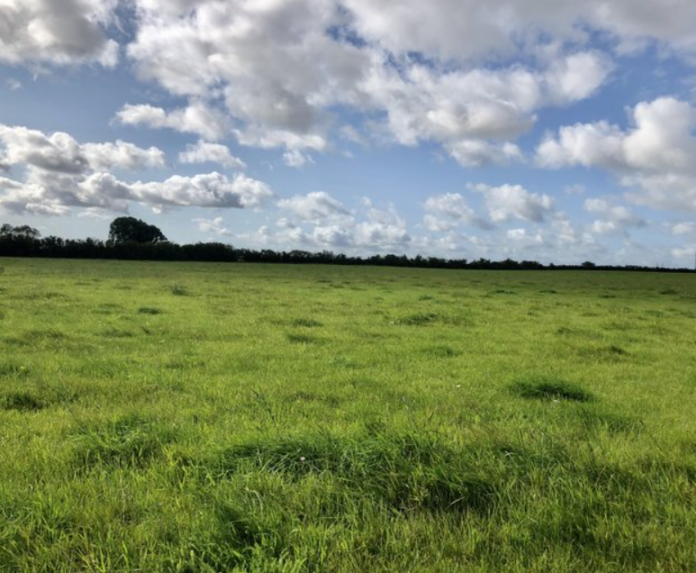Taylor Phillips provides a definitive pest management guide.
Regardless of type or size, all farms can either thrive or become ruined depending on how much effort farmers put into maintaining and improving them.
While there’s little that can be done in terms of the impact weather has on crops and greens, gardeners and farmers can at least control air temperature and humidity with adequate devices and technologies.
Pests, on the other hand, present a strikingly different challenge. While atmosphere-related obstacles can be contained with a bit of trial and error, eliminating, and managing pests in your garden requires knowledge regarding different types of pests, effective traps, and such.
Different types of pest identification
Before you can effectively control a population of farm pests, you will first need to identify several things.
These include:
- Pest type;
- Approximate numbers;
- Severity of infestation.
The first step is crucial, as it will help you decide which tools you’ll use to exterminate existing pests. You will also be able to decide when and where to hunt them.
For example, if you’ve noticed an infestation of moths on your farm, you should hunt them at night, as they are nocturnal creatures.
However, suppose you’ve discovered a couple of cockroaches. In that case, you should pursue them during the daytime despite them being nocturnal pests – they are more sluggish during this period and are far easier to catch off guard.
Aside from visual confirmation, you can identify pests by the kind of damage they’ve done to your crops.
Grasshoppers and most types of beetles are known to chew holes in the leaves of plants. Aphids and leafhoppers don’t leave as many visible traces; instead, they ‘drain’ the plant of life, making it more brittle and decoloured.
Slugs, aphids, mealybugs, and whiteflies leave behind a trail of honeydew, which is much easier to notice than the pests themselves.
Pest management: What to do if your farm is infected
Beginner farmers often mistake all insects for pests. In truth, many types of insects may land on some of your crops without presenting any danger to them.
Carnivorous insects have a tendency to hover around farm crops and occasionally nest on the leaves while preying on pests, such as ladybirds, lacewings, aphid midges, and praying mantises.
Fortunately, you won’t have to hunt for these beneficial insects, as they are naturally drawn to pest infestations.
If, by some chance, you don’t see ladybugs or aphid midges near your farm, you can always buy a couple and introduce them to your farm.
Beneficial (predatory) insects are the least demanding and among the most efficient ‘tools’ in a farmer’s arsenal when it comes to long-term crop management.
Crickets are stuck between good and bad farm inhabitants. They may ruin a batch of your crops, but they are also more than capable of ending large-scale infestations with ease.
However, not all beneficial insects are benevolent. While praying mantises are extremely proficient at whittling down larger populations of garden pests, they usually don’t respond too well to humans and may attack you.
In terms of farm animals, a watchdog can always be useful. They are more responsive than cats, and even if they don’t manage to kill many insects on their own, they will scare the vast majority of them through barking.
Cats, on the other hand, are far deadlier and will help you whittle down larger infestations of pretty much any pest. However, they are almost impossible to control.
How birds benefit farms
Many birds are omnivores and will pluck your farm clean of both mice and smaller insects. Unlike cats or dogs, birds need ample space to nest, fresh supplies of water, and a bit of encouragement to even come in the first place.
Most types of birds will stick on your farm as long as there are pests to nibble on, but they may react negatively to pesticides, especially towards spray pesticides.
Wireworms
Wireworms are one of the pests that have troubled Irish farmers more than most. What makes them so terrifying is the fact that you will have limited treatment options at your disposal.
They’re not dissuaded by most smells and are too tiny to be spotted by household animals.
Some would argue that field mice and rats can cause more damage to the crops in shorter time intervals. However, the rapid breeding cycle of wireworms puts them on top of the list.
Furthermore, adult wireworms lay their offspring into the ground; upon reaching maturity, hatched larvae attack the roots of crops and can undermine a good section of a moderately-sized plantation in record time.
Careful inspection and regular maintenance are the most efficient preventive measures you can take against them.
As soon as you notice that some of your crops are not growing at the rate you’ve expected them to check under the leaves to see whether you’re dealing with scaly bugs, aphids, or similar types of parasites.
If not, gently dig around affected crops, and you’re most likely to discover an infestation of wireworms.
Handpick as many as you can, and drown the rest with tap water unless they’ve attacked flimsy crops that can’t withstand a higher quantity of water.
For instance, Chokeberries, Summersweet, Arrowwood Viburnum, and American Cranberrybush are remarkably resilient to water and are almost impervious to drowning.
Organic pesticides
Most farmers shun pesticides for good reasons. Aside from potentially killing existing plants, many pesticides also affect the soil. They can hinder the growth of newly planted crops or kill them outright.
Pesticides with organic formulas (specifically products that do not contain harmful chemicals) offer a more practical solution.
While all-natural pesticides are essentially non-existent, somewhat ‘greener’ options will help you keep your farm pest-free for extended periods. On the downside, organic pesticides are slightly more expensive than ‘regular’ ones.
Other articles on pest management:





